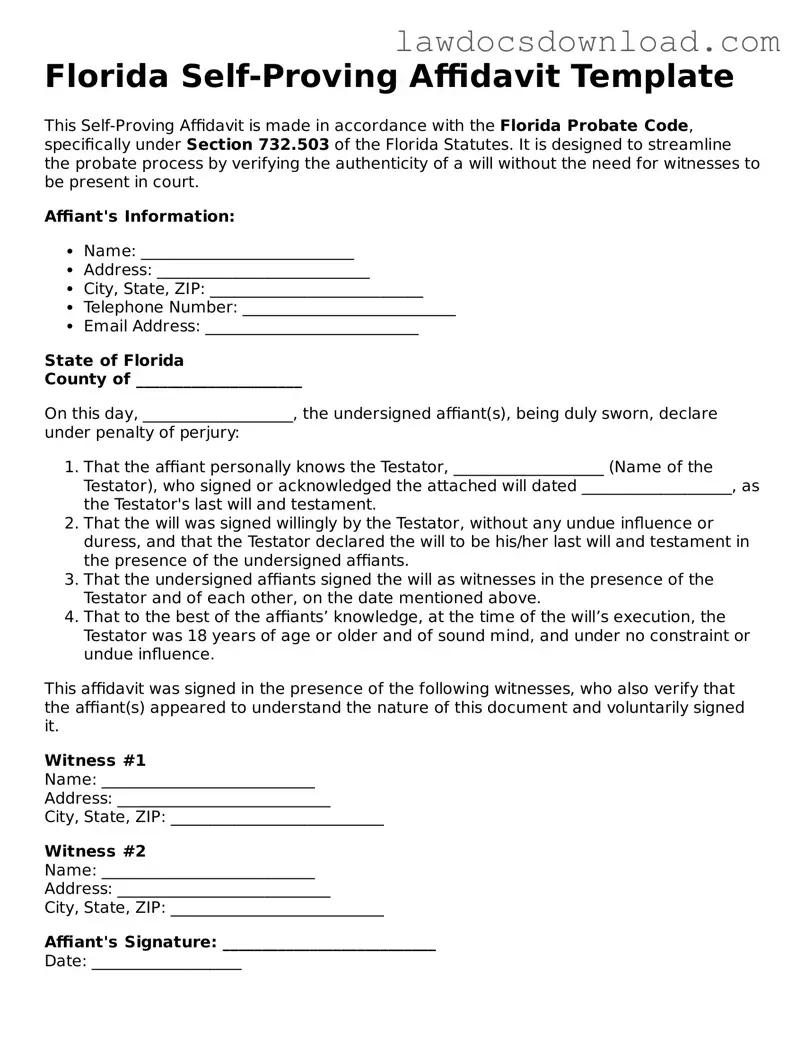Legal Florida Self-Proving Affidavit Form
A Self-Proving Affidavit form in Florida is a legal document that accompanies a will, verifying its authenticity and thereby streamlining the probate process after the will-maker's death. Essentially, it is a sworn statement by the witnesses to the will, confirming that they observed the will-maker (testator) signing the will and that the testator declared the document to be their will. This tool not only provides peace of mind but also expedites the legal proceedings following a person's passing.
Launch Self-Proving Affidavit Editor Here

Legal Florida Self-Proving Affidavit Form
Launch Self-Proving Affidavit Editor Here

Launch Self-Proving Affidavit Editor Here
or
Free Self-Proving Affidavit
Get this form done in minutes
Complete your Self-Proving Affidavit online and download the final PDF.